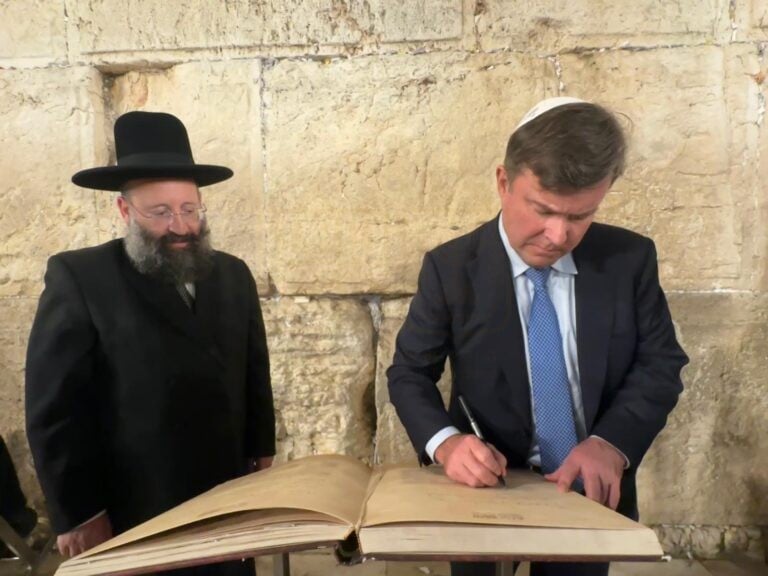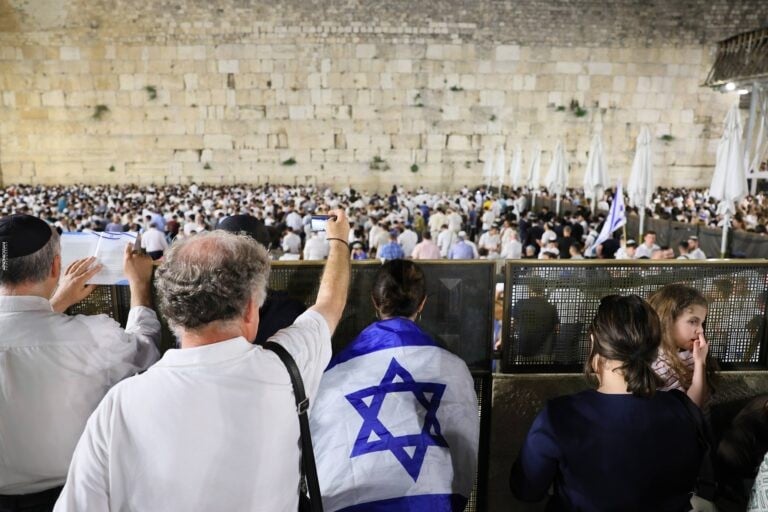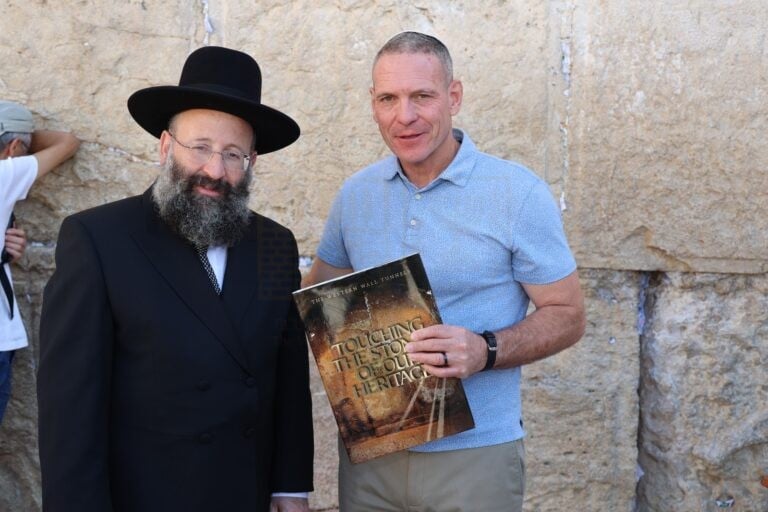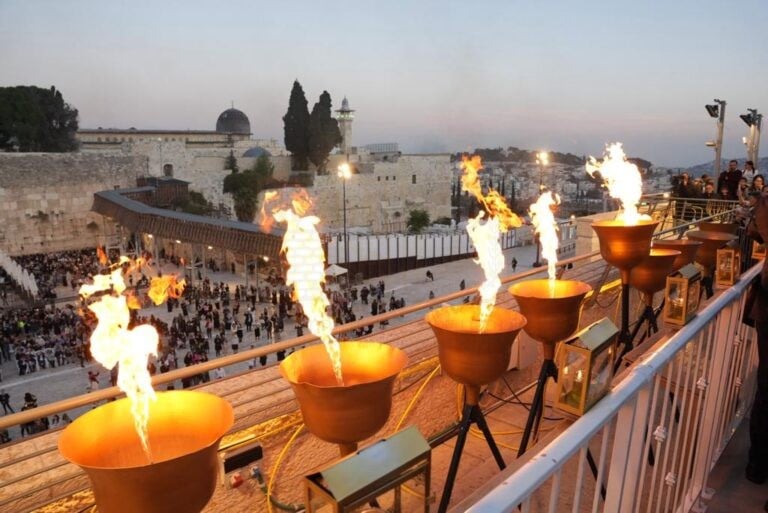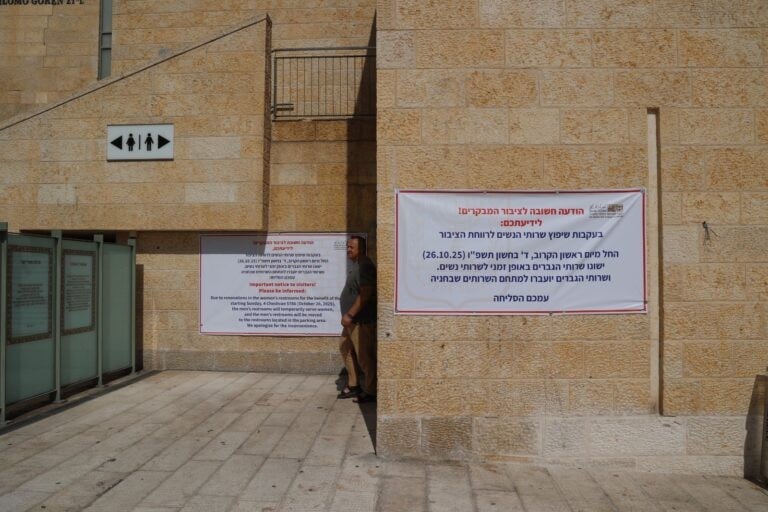Parashat Emor 5783
Rabbi Shmuel Rabinowitz, Rabbi of the Western Wall and Holy Sites
Parshat Emor begins with the responsibilities of the kohanim, the descendants of Aaron who served in the Temple. Most of the list concerns cases relating to two opposing areas: death and marriage.
Regarding death, the Torah prohibits any kohen from becoming impure due to contact with the dead body of a human being, except for first-degree relatives: father, mother, brother, sister, wife, son, and daughter. The Torah also specifies how the kohen should restrict his behavior and react when a close relative dies, so as not to damage his own body out of excessive grief. Regarding marriage, a kohen is forbidden from marrying women in certain personal statuses, including a divorced woman, who is prohibited for the kohen.
The opening of this list seems a bit strange:
“And the Lord said to Moses: Speak to the kohanim, the sons of Aaron, and say to them…”
(Leviticus 21:1).
The repetition of “speak” and “say” in this verse has occupied Torah commentators throughout the generations. Some commentators, such as Don Isaac Abravanel, saw in this an instruction for Moses to repeat the list of prohibitions to the kohanim multiple times. This is precisely because these are complex situations in which a person may lose his judgment. Therefore, Moses was instructed to emphasize the severity of the prohibitions to the kohanim, the intended recipients.
Rashi, a medieval French commentator, interpreted this verse differently. According to him, following midrash halacha of Torat Hakohanim, the repetition of “speak” and “say” emphasizes a dual utterance, but not by Moses, but rather of the kohanim.
Rashi writes as follows:
Speak…and say… to admonish the adult (kohanim to be responsible) for the minors (that they must not contaminate them).
(Rashi, Leviticus ibid)
Moses was instructed to tell the kohanim about the specific prohibitions that applied to them and to instruct them to pass on these teachings to their children. This is one of the examples where the Torah focuses on the role of education, a role that is so important and is placed on every parent.
The unique emphasis on the role of education appears here specifically because parents are responsible for preparing their children for the complexities of life, for situations where they face challenges, where they need to overcome their turbulent emotions, for situations where they need to cope and demonstrate their ability to restrain themselves.
One of the prominent educators that the Jewish people produced was Rabbi Kalonymus Shapiro, who served as the Rabbi of Piaseczno, Poland (1889-1943) and devoted his best efforts to education and guiding educators. Even during the Holocaust, when Rabbi Shapiro lived in the dangerous conditions of the Warsaw Ghetto, he did not stop educating. After a tiring day of work, the suffering Jews would gather around him, seeking comfort and encouragement to survive the dire situation. Rabbi Shapiro was murdered by the Nazis after the Warsaw Ghetto uprising, but the books he wrote remain with us and continue his blessed work: to educate young and old alike.
In his books, Rabbi Shapiro emphasized positive education. He taught that it is important to identify the internal and external strengths of the student, the things he is good at and enjoys. It is the role of the educator to identify them and help the student to put them into action.
Rabbi Shapiro emphasized the role of the educator in preparing the child to believe in himself and his abilities, in knowing what great benefit he can bring and focus on his strengths and not his weaknesses. But even more, he pointed to the role of the educator in discovering the soul of the child: The educator should lean down to the child, bend down and speak to him at eye-level, until he reaches the hidden spark of his soul, helps bring it out and helps it grow.
This remains the crucial task of every parent and educator. To do their best to raise the next generation in the best way possible, to be successful people who are able to convey their inner virtues, and to be Jews who are devoted to Jewish tradition and values.
